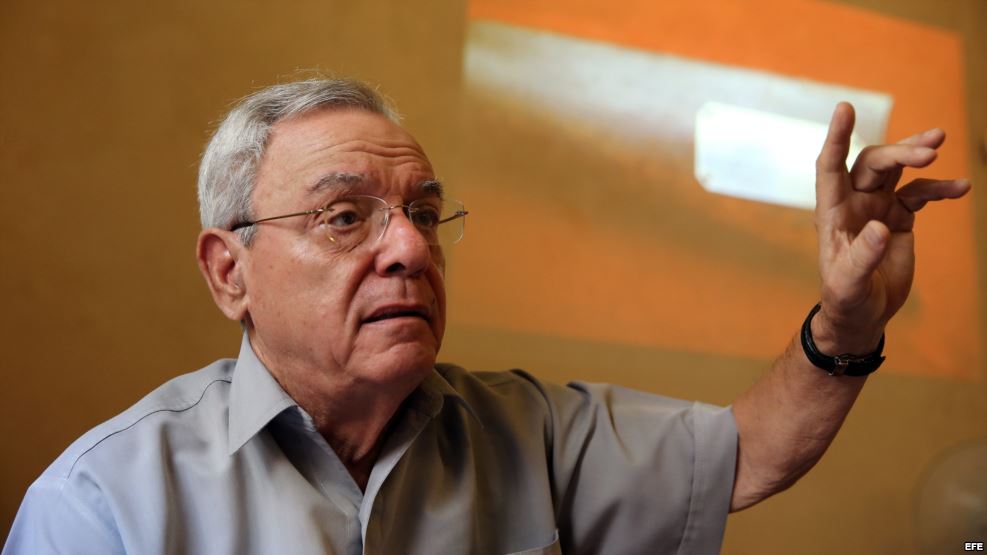
Juan Juan Almeida, 19 October 2016 — As in the Greek epic, Eusebio Leal, the Captain of a small stronghold of Cuban historians, confronted Brigade General Luis Alberto Rodríguez López-Callejas and the Business Administration Group of the Armed Forces (FAR) with lively and poetic oratory. We know that FAR has taken possession of Habaguanex and several business institutions linked to the Office of the Historian of the City of Havana.
This past October 11, from the central patio of the Palacio del Segundo Cabo, during an exhibit that began at 8:30 in the morning and lasted a little more than one hour, Doctor Leal Spengler inspired confidence in his troops, using phrases like: “The Office of the Historian is today stronger than ever”; “We’re facing the storm without any type of fear”; and, “Be calm and serene, let nothing perturb you; I am here.”
Self-taught and with more awards (national and international) than any other Cuban, Eusebio Leal met with the technicians and directors of the different museums, because – according to his explanation – “Of all the groups with whom I work, the one that shares my goals the most is the one dedicated to museums, the collections, and to that exercise of searching which becomes a necessity for each one of us.”
With vague insinuations of mutiny and not calling for obedience, Leal, a member of the National Assembly’s Commission on International Relations, the Committee for the Eradication of Poverty of the United Nations, the National Geographic Society, the Madrid Royal Academy of History and the Latin American Council for Human Rights encouraged his troops publicly to not allow anyone to intervene and put their hands even on one piece of the museum without being properly prepared, and to not accept “improvised directors although they have a wonderful curriculum of having done other things in life.”
“The inventory” — he harangued them — “to mention only the subject of furniture, needs the knowledge of an antiquarian who has studied the different styles, epochs and models. It’s not just a matter of a table with four legs.” And thus, dressed in his usual grey safari outfit that he wears like a uniform, visibly recovered from the illness that afflicted him and vaunting his oral skills, he answered with irony-charged words the discredited oration, “During the process of transfer, the important thing is the inventory,” that the General-Intervenor Leonardo Ramón Andollo Valdés gives in every meeting with imperial enthusiasm.
“I’m an attorney, and I know what corresponds to me,” he said solemnly, remembering, in an emotional moment, the sentence that the illustrious Cuban patriot and composer of our national anthem, don Pedro Figueredo, pronounced on that fateful afternoon of August in 1870, facing the military tribunal that condemned him to death by firing squad.
“To those like me who admire Leal’s work and the Office of the Historian, we are sad knowing that the final chapter in the struggle to govern Old Havana looks like it won’t go any further,” said a known worker who, having been present at such a restricted meeting, requested anonymity.
Translated by Regina Anavy
